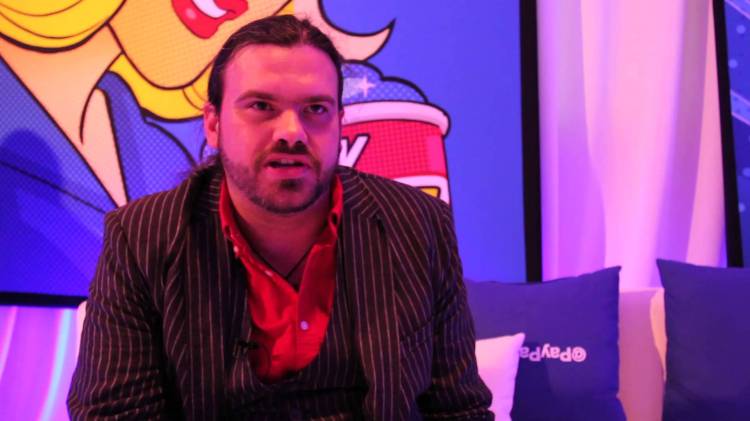Braintree could finally help developers love PayPal — or at least give PayPal another look.
After PayPal announced this morning that it is acquiring Braintree for $800 million, I had a chance to chat with PayPal’s developer relations head John Lunn to find out what the deal means for the company. The big takeaway? This is PayPal’s big chance to hit it off with developers, after struggling to make them adopt its legacy-laden developer platform.
Editor’s note: Developers! If you’re good and want to be great, our upcoming DevBeat conference, Nov. 12-13 in San Francisco, is a hands-on event packed with master classes, presentations, Q&As, and hackathons, all aimed at boosting your code skills, security knowledge, hardware hacking, and career development. Register now.
VentureBeat: What does this deal mean for developers?
John Lunn: We were moving down this track to build a new PayPal for developers, with new APIs and a new website, etc. The truth is, we weren’t moving quick enough. We were moving fast, but we just weren’t going as fast as we wanted to go. We looked kind of jealously at Braintree and what they were doing and how quickly they could innovate and were like, “We need to be like them.” This is how you do that.
So basically, this acquisition means that we’re going to keep Braintree as Braintree. We’re going to keep them standalone, keep them with that startup speed that they have, and make Braintree the developer platform for everything we’ve been trying to do. The strategy is exactly the same as we had in March and what we’ve been trying to do all year. This just makes us able to accelerate it and keep things running, which big companies struggle with, to be honest.
VentureBeat: Specifically, what were the things that made you jealous?
Lunn: Innovation and speed. We were doing very similar things, we just couldn’t go as fast as them. They’ve been around since 2007 and were evolving things like marketplace technologies. They had really interesting things on mobile and got a lot of the top mobile startups using them. These are things that we had, and we were getting back, but it was just taking too long — that whole startup spirit, you just feel it when you go and see these guys. That sort of hunger and appetite and need to change the world, it’s just buzzing from these guys. That’s what we need to get there really really quickly.
VentureBeat: How exactly will Braintree help PayPal work faster?
Lunn: Braintree will be the developer platform. … This is going to make the ease of using PayPal for developers simple. … We haven’t really talked about this, but Braintree is famous for its customer support. They win awards for it. By putting things through Braintree, we’ll have really good support for developers. … That’s very important.
VentureBeat: Did PayPal have anything at the level of what Braintree was offering?
Lunn: We’ve been doing this for a long time, so we’ve got credit card processing services, we’ve got mobile payment services, we’ve got all of this stuff, and we’ve had it for a while. I think the problem is, we’ve had it for a while. We were making it better as quickly as we could as a big company, but these guys were even quicker.
VentureBeat: Why choose Braintree over any of its competitors?
Lunn: The fit is one of the things. … We believe mobile is the future. … They also believe mobile is very important. That fit, with the people they have and the culture they have, it was just right. And if you look at the merchants that they’re attracting as a company … these are the top startups out there in this sort of developer environment. … The fit was perfect.
VentureBeat: How long until we see Braintree technology or their people working on PayPal products?
Lunn: This is the important thing: We’re keeping Braintree as Braintree. We’re not going to merge them into our products, and we’re not going to merge them into our teams. That would be disastrous. That’s not what we’re going to do here. We need to keep them hungry, and we need to keep them as a startup.
The idea here is to start offering PayPal services through Braintree, not integrate Braintree into Paypal.
VentureBeat: So when it comes to something like Venmo Touch [which dramatically simplifies mobile payments], would PayPal just be another one of the options?
Lunn: The whole decision about what we’re doing exactly with each product … since the deal closes in Q4, we’re not going to talk about that yet.
VentureBeat: What happens to the existing solutions PayPal has that overlap with Braintree?
Lunn: At the moment everything is running as they are, and we’re keeping them separate. Obviously, when we close the deal, we’re going to look at how things work exactly and how we evolve this stuff and offer the best of both worlds.
VentureBeat: How would you respond to the worries that PayPal is becoming a payments monopoly?
Lunn: We process a good chunk of Internet payments, but we’re by no means the majority. There are big credit card companies out there, there are banks out there, there are lots of competitive companies out there. It’s not a monopoly, but we like to think we have one of the best solutions, and we think the combination of these two companies means we’ll have the best solution for payments globally.


